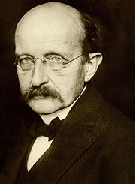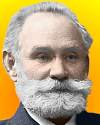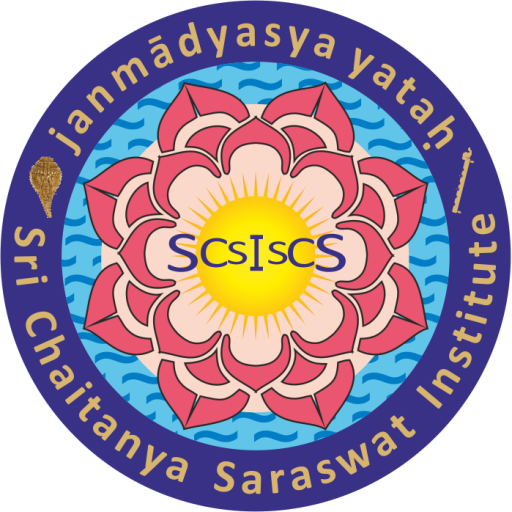About Us - 10th International Conference Science and Scientist - 2022
About Princeton Bhakti Vedanta Institute of Spiritual Culture & Science
The modern material conception of life is based on the abstract idea that the Absolute or Ultimate Reality is Substance, while Vedanta concludes that the Absolute is sentient, or Subject. We advocate the scientific study of Reality within the Vedantic Bhagavat conception. Thus everything turns on grasping that the certainty we have that the Absolute is Substance, must be superseded with the certainty that the Absolute is Subject, sentient, self-conscious Spirit or Divine Personality.
For more information: http://bviscs.org
About Sri Chaitanya Saraswat Institute of Spiritual Culture & Science
We propose that Life is an organic unity that appears in a myriad of forms throughout the planet displaying its inherently determinate nature (as a unity in difference) as a variegated display of species from the lowly microbe to the dominate Bhumi conception, and beyond to encompass the rest of the universe. This is in keepwhing with the Vedantic worldview. Thus Life is a universal organic unity that exhibits itself as a complete spectrum of living unities, as much as white light when passed through a prism exhibits itself as a rainbow of colors. One color does not evolve from another, and so too does Life exhibit itself in a variety of forms that constitute the wholeness of Life in its full determinateness.
For more information: http://scsiscs.org
About Science and Scientist Conference Annual Conference Series
The Bhagavat Vedanta concept rejects the objective theory of evolution as not only misconceived but an impediment to the actual scientific comprehension of Nature. The Vedantic conception of Life is a fully differentiated one that displays its determinations in and as a dynamic organic whole that integrates subject and object, or thesis and its antithesis, within their original synthesis as Spirit, which as dynamic is not to be misunderstood as a paralyzed stasis or monism but the ever restless and living movement that characterizes Spirit. Organic holism is a conception that has its inception as far back as the writings of Śrī Īśopanisad, where the invocation states: oḿ pūrnam adah pūrnam idaḿ, pūrnāt pūrnam udacyate. The Organic Whole produces organic wholes. An organic whole cannot arise from parts that have to be assembled. That process can only produce inorganic, mechanical machines or chemical processes, not living organisms.
Those who embrace the metaphysics of materialism believe that the mechanistic atomic, molecular and evolutionary conceptions of physics and chemistry can explain not only the physical but also the mental life that exists in the universe. Despite the partial successes of science as currently developed within such philosophical constraints, it is unable to demonstrate how a mechanical system can effectively explain, much less produce, a single living cell or a simple blade of grass. But philosophical knowledge as developed in ancient and modern times has never established that the concept of life can be comprehended as a mechanical system. Reason or rational thought recognizes that a living entity is the very embodiment of an internal cause or teleological end (purpose), which Kant termed Naturzweck, or natural purpose as distinguished from externally or contingently imposed purpose. Living entities are naturally constituted to maintain themselves for their own survival. Such a teleological whole may have many parts or members but they are unified, mutually integrated and held together by an internal bond or purpose. This individual [literally, un-dividable] whole is considered simple because it cannot be reduced any further without breaking the teleological unity that would disrupt it as a unified [differentiated yet integrated] whole or individual. This unity in difference is what is essential to life as a whole, which is not comprehended by either an abstract monism (oneness), or a purely differentiated atomic or molecular aggregate mechanically held together by external forces, or a dualism of unity and difference, but a unity that is intrinsic to difference – a unity in difference, that is neither a monism nor dualism, but a synthetically dynamic unity of both. This unity which overarches and permeates the whole in its differentiated determinations may be more properly referred to as the soul or Concept.
Therefore, to understand life, its origin, its purpose and biodiversity we need a wider, more inclusive and integrated approach for the advancement of science beyond its present stage. The ancient philosophy of Vedānta-sūtra advises that one will have to continue the search, athāto brahma jijñāsā, until one reaches brahman – Spirit, the underlying spiritual source, janmādyasyayatah, the fountainhead where all inquiry will satisfy its purpose. Then beyond knowledge Śrīmad-Bhāgavatam will guide us to the ultimate goal of our search – rasovaisah, the search for highest fulfillment, sweetness and love. The ‘Science and Scientist’ annual conference series is mainly focusing on the complete conception of the true reality of the Sweet Absolute, which is the ultimate goal of science, philosophy, religion and art.
For more information on the event and our activities, sign up to receive our online dialogue with scientists and scholars.
Follow us on Twitter: @bviscs









